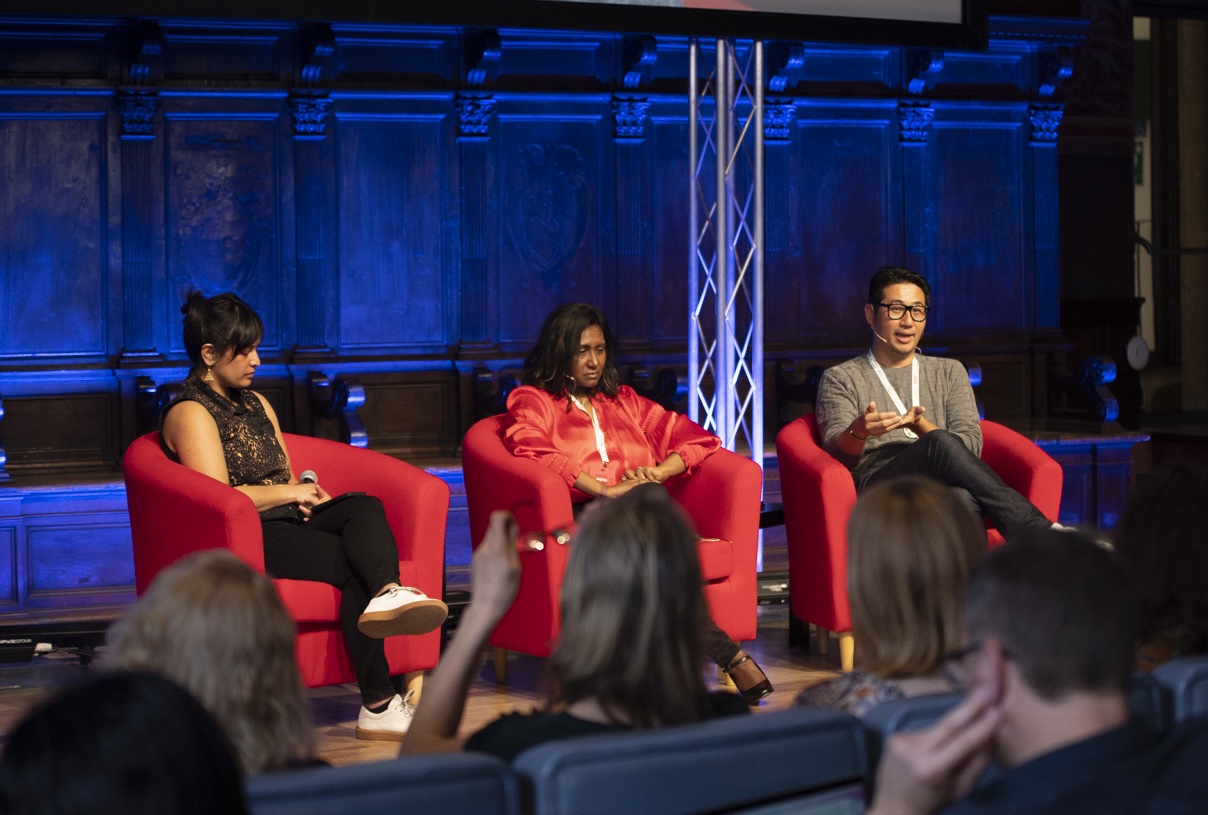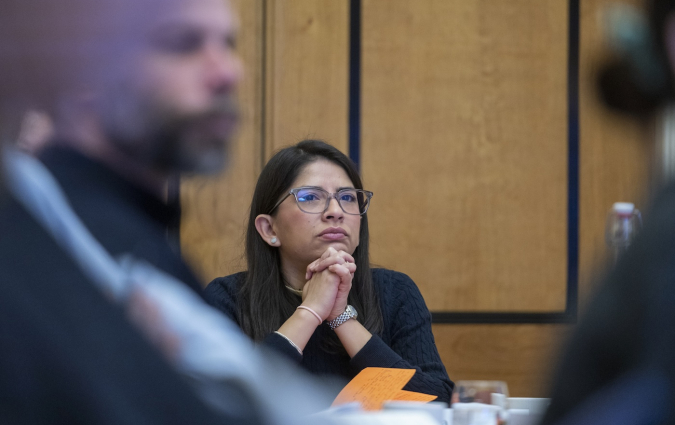Five tips on newsroom leadership from the International Journalism Festival 2023

Shazna Nessa from the 'Wall Street Journal' speaks with Daisy Veerasingham from the AP and Paul Cheung from the Center for Public Integrity. | Credit: Bartolomeo Rossi #ijf23
This year’s International Journalism Festival was full of insights on how to be an effective and intentional newsroom leader. Here are five quotes that we found particularly relevant, from five excellent panels on newsroom leadership that you may have missed:
1. Don’t underestimate the value of your ‘soft skills’ as a leader
“As a leader, you need to use data and facts in making decisions, but the other important thing is relying on your instincts and your judgement… Let me give you an example: When we're trying to deal with a difficult situation and there's a group of people in a room together, I often won't say that much. And that's not because I don't have an opinion, but because I am often observing what is going on around the room. I watch the eye contact between people, I watch whether people engage or lean back, I watch whether somebody in the room is really in agreement with something. And that is something that helps me make a better decision. It’s a combination of facts and data, absolutely, but it is also about using your sensory skills to pick out some of that emotional stuff that can often get missed.
Daisy Veerasingham, President and CEO, The Associated Press
From the talk ‘A new class of media CEOs.’
2. Hire the right people – focus on which specific skills gaps you need to fill and what your team needs the most
“As a leader, I had to get really clear about what I was not good at as a leader, by finding where my skill set ends, and where somebody else’s skill sets would begin... We also made sure all of our hires were connected to what Detroiters [our audience] need most. On the editorial side, that meant bringing in people who understand and have respect for the people of the city of Detroit and who live in the community and who want to put their feet in the community.”
Candice Fortman, Executive Director, Outlier Media.
From the talk ‘I wish I had known then: Advice from a Founder and Executive Director on building a mission-first newsroom with impact.’
3. Take the time to foster and maintain healthy teams
“I have a history with burnout myself, so I know that a safe and mindful work environment does really matter. And we are a very diverse team, with people having families to cater for, so we try to be as flexible as possible when it comes to presence in the workspace or remote working. We also always take time to bond as a team. For instance, we meet once a month for a ‘work sprint,’ we take time to appreciate the work we've done, we take time to bury certain ideas, and we take time to just talk and eat together. It’s not about creating a ‘family’ or anything like that, it’s about creating a healthy balance where everybody feels seen and valued for the work they are doing.”
Ellen Heinrichs, Founder and CEO of the Bonn Institute.
From the talk ‘Constructive female founders.’
4. Invest in structured mentorship programmes for you and your team
“Mentorship, and especially structured mentorship, is extremely important in the newsroom. It's not easy to find the right mentor at the right time for the things you need - and when you are an advanced leader it becomes even more complex – but for junior journalists, if mentorship is structured and invested in with time and trust, it can be very useful.”
Rawan Damen, Director-General, Arab Reporters for Investigative Journalism (ARIJ).
From ‘Gender, leadership and surviving authoritarian regimes and cultures: women leading independent.’
5. Ensure your team is as prepared as for possible for crises - whether those be climate disasters, digital attacks or reputational crises
“Crisis planning should be done before the crisis. You cannot crisis-plan during a crisis. That is the time you should be crisis-managing.”
Salam Omer, Editor-in-Chief KirkukNow
“Even if 100 percent of your plan might not work, at least you are prepared, your team is prepared, and your organisation is prepared, mentally and logistically and psychologically.”
Soe Myint, Editor-in-Chief and Co-Founder, Mizzima
From ‘How today’s media can prepare for the crises of tomorrow.’
If you are interested in newsroom leadership... check out our own programmes for media managers, featuring sessions with experts such as Rasmus Nielsen, Nic Newman, Mar Cabra, Ramaa Sharma, Lucy Kueng and Maya Richman.
In every email we send you'll find original reporting, evidence-based insights, online seminars and readings curated from 100s of sources - all in 5 minutes.
- Twice a week
- More than 20,000 people receive it
- Unsubscribe any time







